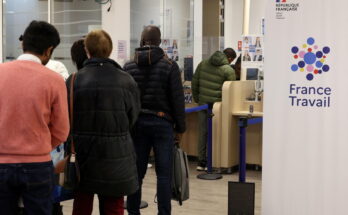Duolingo, the company that created the well-known app of language learning, seems to have lost its magic, and has entered a period of severe stock market crisis. Over the past month, its shares have fallen more than 40% on New York’s Nasdaq and have already lost nearly two-thirds of their value since their yearly high, marked in mid-May. The stocks even fell by more than 25% in a single day, after presenting disappointing forecasts.
In operational terms, Duolingo announced revenues of $271.7 million (approximately €234 million) in the third quarter, 41% more than the same period of the previous year, and higher than Wall Street forecasts. Gross operating profit (ebitda) also rose by 68%, to 80 million, exceeding analysts’ estimates.
However, investors’ disappointment came from the forecasts for the fourth quarter. The company expects an EBITDA of between 75.4 and 78.8 million dollars, lower than the 80.4 million expected by analysts before the publication of the accounts. This forecast, described as weak by the market, reflects a shift in focus towards customer experience and long-term user growth, at the expense of short-term monetization, which began last quarter.
Under these circumstances, Duolingo has suffered a wave of cuts to forecasts and price targets from numerous investment banks. KeyBanc Capital Markets, Citi, Morgan Stanley, Scotiabank, Citizens, Sealand Securities… In fact, in the hours following the publication of the results, more than a dozen analysts lowered the target price of the company’s shares by more than 35%.
According to Bloomberg Intelligence, Duolingo’s reduction in marketing expenses following criticism over its use of artificial intelligence (AI)-generated content may explain why its fourth-quarter bookings and ebitda forecasts are below market consensus.
KeyBanc analysts warned of the company’s tactical decision to invest more in effective teaching, which could result in a higher growth rate in the coming years, but the short-term consequence is a reduction in bookings and ebitda estimates. “This could also have a negative impact on stock valuation multiples,” they noted.
The company reached 135.30 million monthly active users, up 20%, although slightly below estimates. Duolingo, which has 50.50 million daily users (36% more than a year ago), noted a 34% increase in paying subscribers, up to 11.5 million, in this case slightly above forecasts. “This quarter we reached an important milestone: more than 50 million people use Duolingo every day,” said Luis von Ahn, co-founder and CEO of Duolingo. “This scale gives us a unique opportunity to make an impact, and we are achieving this by making our product even more attractive and effective,” he said.
In this sense, Citizens analysts warned that the company lacks any key catalyst to drive user growth, while “product tests are iterations that generate small incremental improvements in retention, which take time to generate changes in the overall user journey”.
The market will be very attentive to the evolution of the number of customers. Bloomberg Intelligence predicts that Duolingo will reach 12.4 million paying subscribers by the end of this year, growing 31% year over year, thanks to improved features of the Duolingo Max tier and rapid growth of the chess course.
Management is exploring alternative payment methods and it is expected that web payments will be rolled out to all users, with a positive impact on revenues and margins reflected in 2026.
Duolingo debuted on the stock market in 2021, with an IPO price of $102. They currently trade slightly above $190, giving the company a market capitalization of $9 billion. In May they reached an all-time high of $544.



